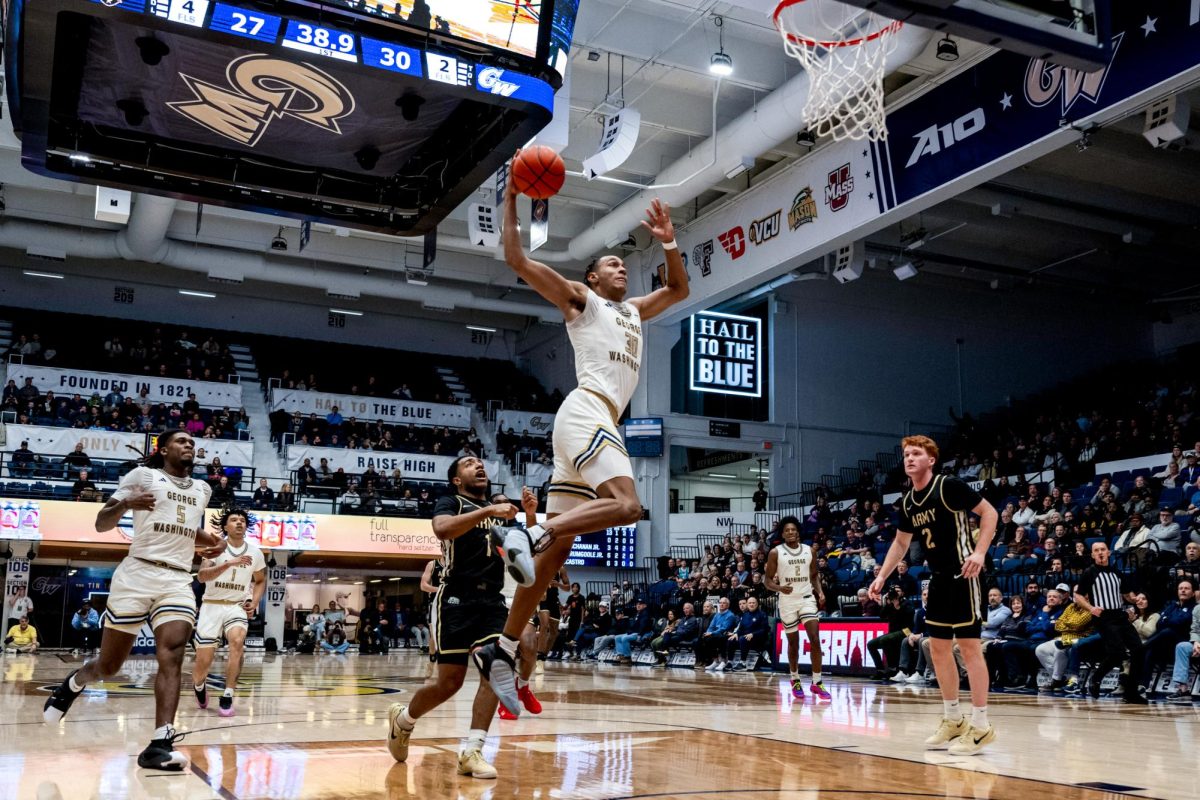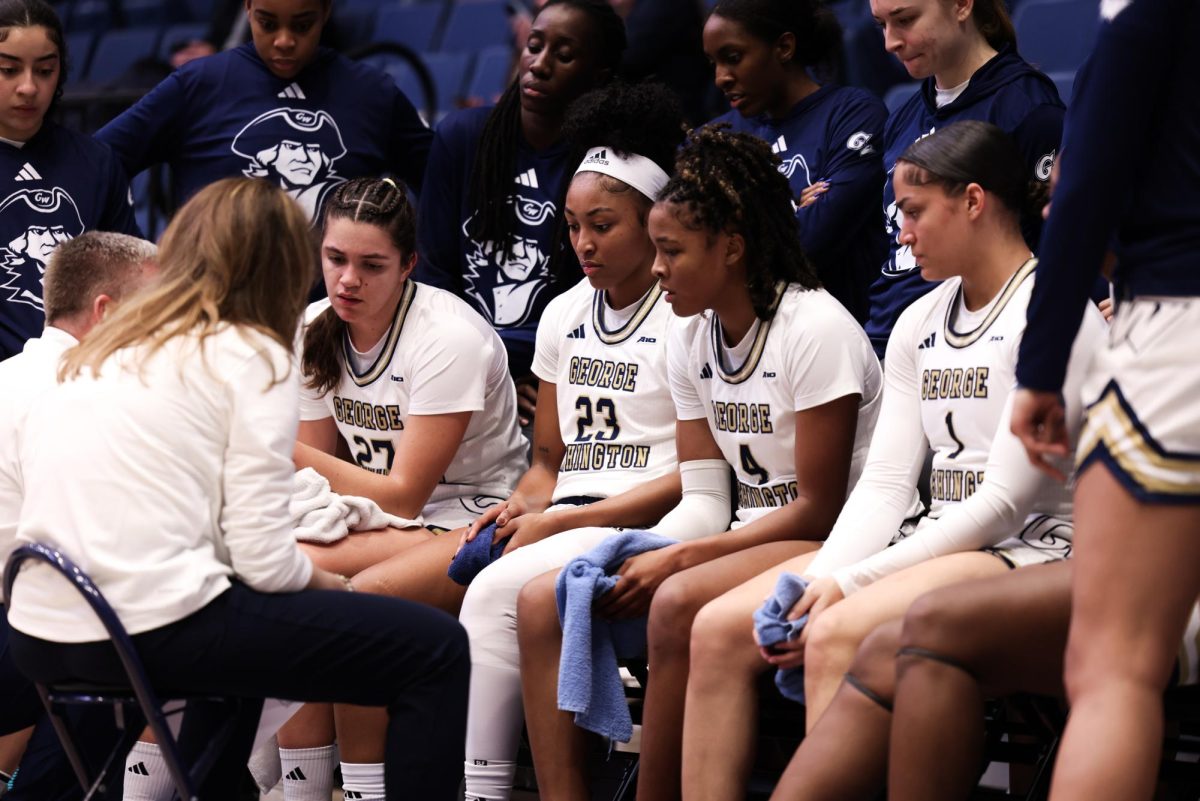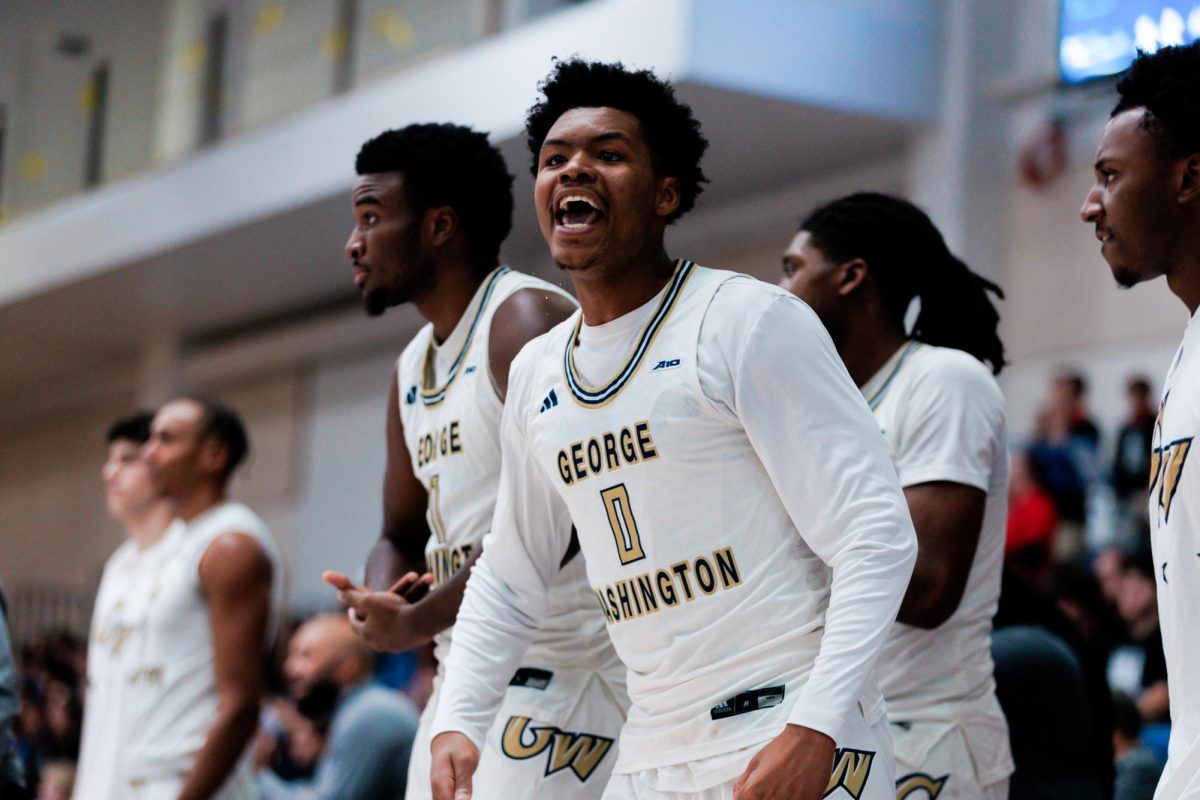It’s 11 a.m. on Super Bowl Sunday in Arlington, Va. and the baseball team is taking a pop quiz.
Head coach Gregg Ritchie has his squad split up into four groups on the diamond at The Tuck, sorted between two position player groups, a group of catchers and a group of pitchers. Ritchie calls on one player to yell out a situation (tied game, ninth inning, runner on second, no one out) and then calls on another player to yell out what they should do in that circumstance (hit the ball in the gap).
If the answer doesn’t fit the player who answered, or just isn’t right, Ritchie, standing in the middle of the diamond, scratches his head while the rest of the team silently watches, awaiting a reply. Today, Ritchie scratches his head with a back-scratcher he took from his office. It’s a couple feet long, with a wooden arm. He takes off his cap and scratches around his bald spot, face scrunched in frustration. He then replies, loudly:
“We’re looking for what YOU do best to move that runner over!”
In his fourth year as head coach of the Colonials, Ritchie feels comfortable with his team. Ritchie – the former hitting coach for Andrew McCutchen and the Pittsburgh Pirates, a professional player reaching AAA and a former All-American at GW – knows what to do to motivate his team the morning of the Super Bowl.
Lucky number four
By the fourth year this is often the case at GW. It’s the year that a majority of the team is made up of the coach’s own recruits. The Board of Trustees and athletic director Patrick Nero have helped grease the wheel, providing more resources for sports through the athletic strategic plan. Sometimes the fourth year is the year.
The women’s soccer team, coached by Sarah Barnes, and the men’s soccer team, coached by Craig Jones, both finished off their fourth years this fall.
The women’s team won the regular season Atlantic 10 title. They saw a 43 percent spike in conference wins from the previous year, an 88 percent jump in conference wins since the first year under Barnes. The women won 71 percent more conference games with Barnes this year than they did in 2011, under the previous coaching administration.
The men’s soccer team also won the regular season A-10 title. They won 42 percent more conference games this year than last year and they won 53 percent more A-10 games this year than in their first year under coach Jones.
And that’s the simple goal for the baseball team too.
“Get more wins than we did last year. It’s always about getting better,” sophomore pitcher and batter Robbie Metz said.
As for basketball, last year was a down year for the men’s basketball team, who went to the NIT instead of the NCAA Tournament, like they did in 2014. Regardless, in head coach Mike Lonergan’s fourth year, his team was still better than the one he started with in 2012. In his second season, Lonergan started four freshmen and in his fourth season he started a team of mostly juniors. Lonergan won 24 percent more conference games, and won 31 percent more games overall in his fourth season.
The similarities are there for the baseball team to look at. Last year the men’s basketball team played with mostly juniors. This year, the baseball team will field six to seven juniors – all of whom started their freshman and sophomore years.
Following a similar pattern, the baseball team enjoys seeing other teams do well. When the men’s basketball team upset then-No. 6 Virginia in November, the baseball team showed up to the student section in uniform and joined the court storm, televised nationally on ESPN, following GW’s win.
“Just watching those guys and seeing them have success makes us happy and have more success,” junior right fielder Andrew Selby said. “We’re driven right away from where we were last year, and from that last game, that Davidson game. We’re driven from that all the way to now, and we know what we need to do to be the best we can be this year.”
The women’s basketball team, under head coach Jonathan Tsipis is another team to look at as a model for success. Tsipis is currently coaching in his fourth year and is set up to defend his team’s A-10 title from 2015. Similar to the baseball team, Tsipis inherited a roster of veteran talent – although it had not won for quite some time. Last year, aided by his own recruits, Tsipis led his women’s team to a 44 percent increase in conference wins from his first year, and a 65 percent increase in conference wins from the year prior to his start, in 2012.
As for baseball, last year they won 32 percent more conference games and 24 percent more games overall than they did in 2012, the year prior to Ritchie’s start with the team. This year, Ritchie has put together a tougher non-conference schedule for his team, as the two basketball teams have done the past two years.
As the soccer teams suggest – the fourth year is the golden year. The third year for men’s soccer saw a 2‒4‒2 conference record and the women saw a 4‒3‒1 record. The baseball team went 13‒10 last year in conference, reaching the semi-finals of the A-10 championship.
Last year the goal for baseball was to go to Omaha, Neb. – the home of the College World Series. To get there, they would have needed to win their conference, which they did not do. This year, the goal is to win the conference, and then Omaha can come.
“We had the same goals and the same belief, but we were still young,” starting third baseman and junior Eli Kashi said. “We had a lot of inexperience that we had to work through. It’s not to say we won’t make mistakes because we’ll always make mistakes, but this year they’ll be minimized.”
For everyone on the baseball team, this is their year. In Ritchie’s first year he was awarded conference coach of the year after qualifying for the A-10 tournament with a team that was the preseason pick to finish dead last. In Ritchie’s “sophomore” year, he started the youngest team in the country. It’s now in his “senior” year that it seems he can join the other GW coaches, barring major injuries, to come through on their team goals – moving runners over, scoring runs, getting wins and winning the conference.
“You can talk about you had 15 seniors and a non-winning program for many, many years, finishing in the bottom for many years,” Ritchie said. “You’re able to accomplish something, great. Then you have the 20 freshmen, that’s a challenge. Then last year you play a little better competition, you ramp it up. Your expectations go higher and that’s a little bit of a challenge. But as you creep, creep, creep, creep, it’s like ‘OK, we want to get better, better and better,’ that margin becomes so small.”






